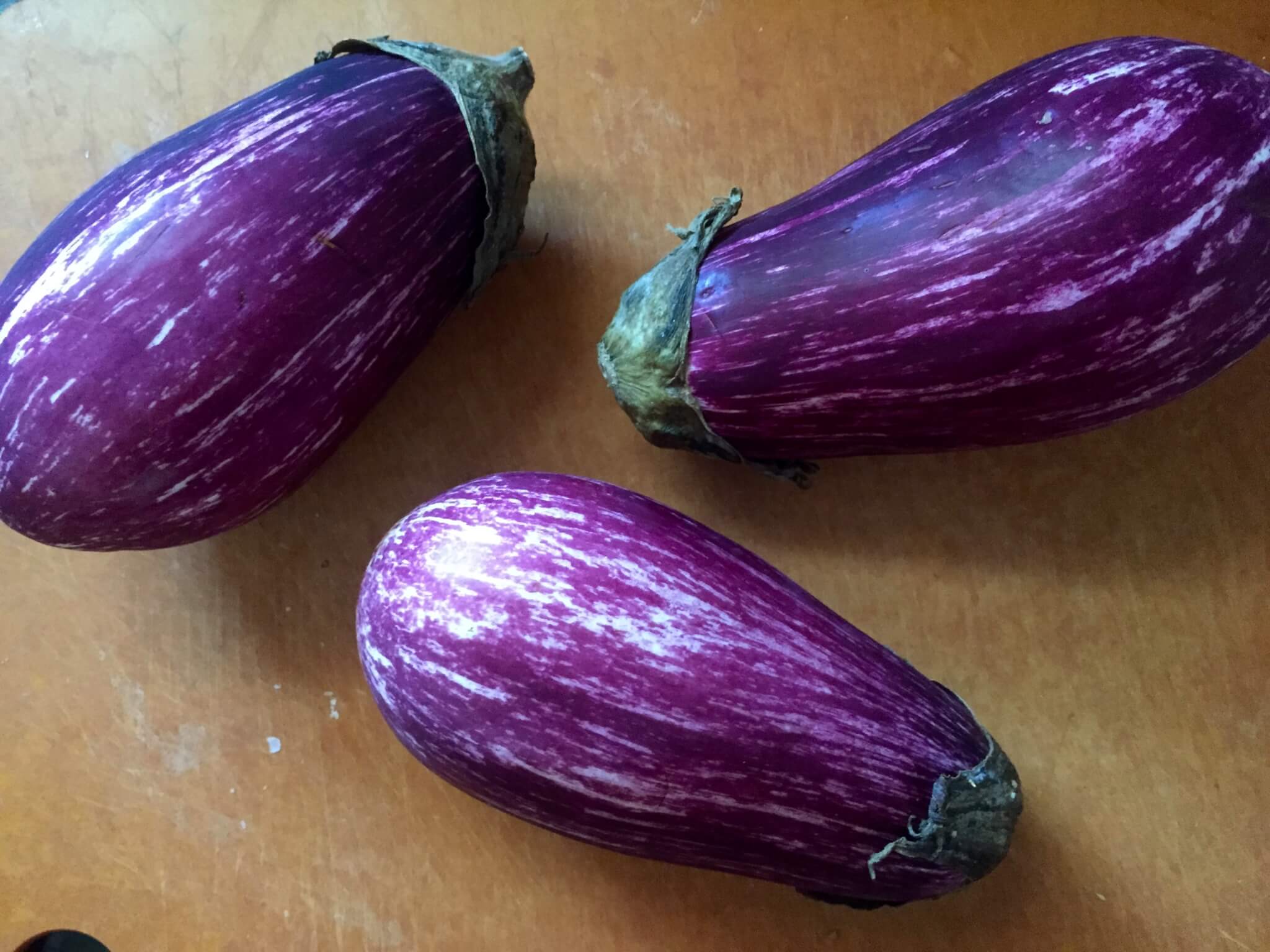
What’s in Season Now: Eggplant
What’s in Season Now: Eggplant
I spent half my life as a zealous detractor of eggplant. My recollections from growing up are not fond; tasteless, too-thick, spongy slabs, oozing the Crisco oil they were fried in; this was the stuff that nightmares were made of…at least mine were. When you encounter foods that aren’t prepared well, it creates a bias that can be hard to overcome. I know people who shudder at the thought of tempeh, tofu or beets because they had a bad experience. It wasn’t until years later, in a cozy Italian restaurant where eggplant was done right, did I give this humble vegetable another chance and come to appreciate the virtues of this purple beauty.
At its peak in August through October, eggplant is hearty, satisfying and can easily take center stage of a meatless meal. Eggplant is often misunderstood; it’s a fruit, not a vegetable. And like its relative, the tomato, it’s a member of the nightshade family. Tomatoes, peppers, potatoes and eggplant are commonly called nightshades. They all produce an alkaloid compound called solanine. Solanine is part of these plants’ natural defense system, acting as a nerve poison on insects that try to eat the plants. People with arthritis and other inflammatory conditions often avoid nightshades, but research indicates that the highest concentration of these alkaloids is in the stems and leaves of these plants. Unless you have a sensitivity to solanine which is not common, the current thinking for people with inflammation is that eating nightshades won’t cause an increase in symptoms. Whew! Good news because eggplant, and all the nightshades, provide a host of health benefits.
Health Benefits
According to Medical News Today, eggplants support heart health by lowering blood pressure and LDL (bad) cholesterol. Eggplant is said to have important anti-cancer properties and can slow tumor growth and prevent the invasion and spread of cancer cells. A compound called nasunin found in eggplants is a powerful anti-oxidant that helps prevent age-related mental disorders and memory loss. And if all that weren’t enough, it’s low in calories and high in fiber so it can be a healthy way to feel full and manage weight. Of course, moderation is key. If you have low iron or a history of kidney stones, you don’t want to go on an eggplant bender.
Purchasing and Storing
There are a variety of eggplants, from the long, thin Japanese and Chinese to the round, white and purple globe variety. Italian and American versions generally appear dark purple, and are thick and round on one end. Choose ones that are firm and somewhat heavy for their size with skin that is smooth and glossy. Avoid eggplants that appear withered, bruised, or discolored. Keep unpeeled eggplants in the refrigerator for up to a week.
I’m not sure if these are urban legends or not, but these two ideas are losing favor among some notable discerning palates; the idea that male and female eggplants taste differently and the “requirement” of salting and draining eggplant before using to reduce bitterness. Personally, I don’t notice a difference in either case, but see for yourself.
Eating
Eggplant is nothing if not versatile. Grill thick slices and top with tomato sauce and dairy-free cheese for a healthy gluten-free pizza. Brush cubed eggplant with olive oil and your favorite spices then thread on skewers with other veggies and grill. Cut into strips, toss with olive oil and sprinkle with nutritional yeast, onion & garlic powder then bake to make eggplant fries.
And check out these other recipes that highlight eggplant in all its glory:






